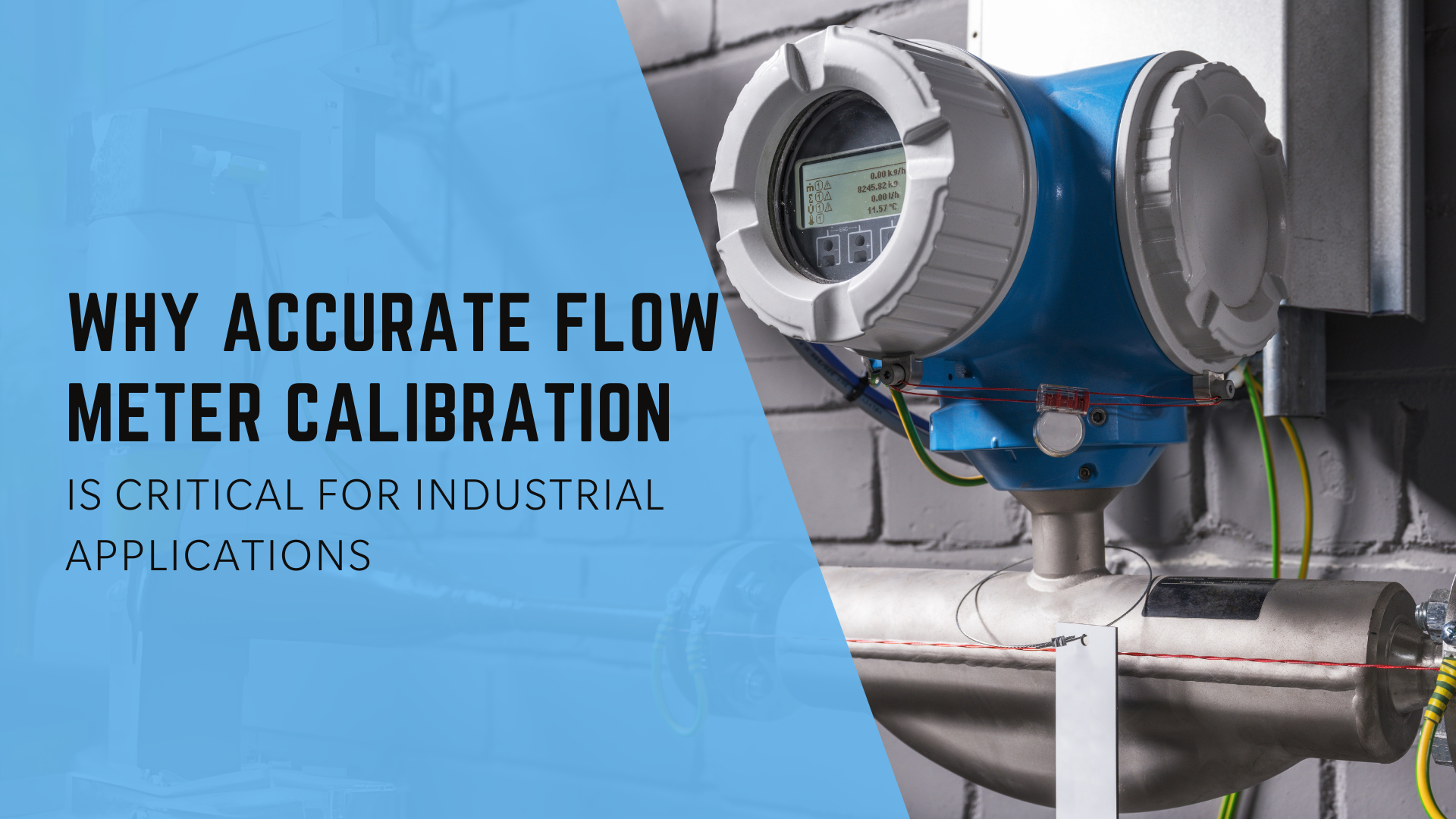
In any industrial process that involves measurement of liquids and fluids—whether it be water, oil, chemicals, or gas—flow meter calibration is critical to ensure process efficiency, compliance and safety. If a flow meter is miscalibrated, it can mean excessive product loss, inefficient processes and even safety issues. In this blog, we’ll cover why flow meter calibration is essential, how it affects performance, and why NABL-accredited calibration labs are the right choice.
Flow meter calibration is the practice of comparing a flow meter's measurement to a known reference standard. The objective of the calibration process is to correct any errors in the flow meter so that it consistently produces accurate flow readings. This process occurs under controlled conditions and uses traceable standards.
1. Maximizes Process Effectiveness
Measurement of flow is essential in industries such as food and beverage, pharma, water treatment, and petrochemicals—a flowmeter's precision and accuracy directly impact processes such as dosing, batching, and mixing. Even a fraction of a difference in measurement may result in a rejected batch, wasted resources, or an out-of-spec product.
2. Minimizes Running Costs
When a flow meter is out of calibration, the risk of underutilising (wasting material) or overutilising materials exists. Regular calibration services will improve waste and cost efficiency and lower operational costs. Accurate flow meters will reduce energy use and downtime for maintenance.
3. Keep Regulated Industries Compliant
For industries that are regulated and accountable for scenarios that might potentially happen, calibrated and certified instrumentation is essential. Only a NABL-accredited calibration lab can provide certified instruments adopted for use by the regulatory body during audit or certification.
4. Protect Safety and Product Quality
Inaccurate flow measurement can be potentially hazardous, depending on the process. Bad flow data can lead to equipment over pressure, equipment failure, or hazardous chemical imbalance. Proper calibration of the flow meter will ensure that the equipment runs under the safety limits and reduce the potential for harm to people and the environment.
The frequency for calibration should depend on Industry type, Frequency of usage, Manufacturer guidelines, and Regulatory compliance. A best practice is to schedule calibration services every year or every six months. Industries which require high precision may require more frequent calibration.
The following are some benefits of using a NABL-accredited calibration lab (National Accreditation Board for Testing and Calibration Laboratories):
Accreditation is essential if you are in regulated industries or exporting products internationally.
A valid calibration certificate typically includes:
Always ask for a NABL-traceable certificate to maintain proper documentation.
For industries where precision is critical, a flow meter calibration is essential, not optional. Whether you are checking the accuracy of chemical dosing in a water treatment process or the accuracy of a pharmaceutical or manufacturing process, the accuracy of your flow meter will directly impact productivity, compliance, and safety.
Choosing a NABL-accredited calibration laboratory like Roots Metrology provides the peace of mind of traceable, certified, and experienced calibration services, tailored to your industry. With the latest infrastructure and a committed team of professionals, Roots Metrology can ensure that your devices operate dependably, batch after batch.